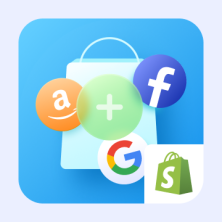If you’re a creative entrepreneur or artisan looking for Etsy alternatives, you’re not alone. While Etsy is a popular platform for handmade goods, vintage items, and digital products, many sellers feel limited by its fees and policies.
Whether you’re searching for sites like Etsy to diversify your income or you want a free alternative to Etsy, this comprehensive guide will help you discover sites like Etsy and find the perfect fit for your unique products.
Let’s explore the best alternatives to Etsy that suit your needs!
Read More: How to Learn to Sell on Etsy
Why Explore Alternatives to Etsy?
Etsy has been a go-to marketplace for years, but it’s not a one-size-fits-all solution. Here are a few reasons why sellers are seeking other places to sell besides Etsy:
- Fees: Etsy charges listing fees, transaction fees, and payment processing fees, which can eat into your profits.
- Competition: With millions of sellers, standing out on Etsy can be challenging.
- Policy Changes: Frequent changes to Etsy’s policies often frustrate long-time sellers.
- Custom Branding: Etsy limits your ability to build a unique brand compared to standalone platforms.
Fortunately, there are many websites like Etsy that cater to creative sellers, digital product creators, and small businesses. Below, we’ll explore the 10 best alternatives to Etsy for 2025 and beyond.
1. Shopify
If you’re serious about building your brand, Shopify is one of the most powerful Etsy alternatives for sellers. Shopify lets you create your own online store with full control over branding, pricing, and customer interactions.
Why Choose Shopify?
- Customizable: Fully design your store to match your brand identity.
- Scalable: Perfect for businesses that want to grow without limitations.
- Digital Products: Easily sell digital downloads and subscriptions.
Fees:
Shopify charges a monthly subscription starting at $29, plus payment processing fees.
Ideal For:
Sellers who want a professional, branded website and are willing to invest in marketing their shop.
Read More: Shopify vs. Etsy – How to Choose?
2. Amazon Handmade
Amazon Handmade is a curated marketplace within Amazon that focuses on handcrafted goods, making it a great marketplace like Etsy for artisans.
Why Choose Amazon Handmade?
- Massive Audience: Access Amazon’s vast customer base.
- Global Reach: Sell to customers worldwide with ease.
- No Listing Fees: Amazon charges a 15% referral fee but no upfront listing fees.
Fees:
A flat 15% referral fee on each sale.
Ideal For:
Handmade product sellers looking for exposure to millions of shoppers.
3. Big Cartel
Big Cartel is a user-friendly e-commerce platform designed for independent artists and small businesses. It’s often considered one of the free alternatives to Etsy.
Why Choose Big Cartel?
- Affordable Plans: Free plan available for up to five products.
- Ease of Use: Simple to set up and manage your shop.
- Customizable: Allows for personalized branding.
Fees:
Paid plans start at $12 per month, with no transaction fees.
Ideal For:
Emerging artists and small-scale sellers who prioritize simplicity and affordability.
4. Squarespace
Squarespace is another robust platform for building your own branded website. It’s especially appealing to sellers of digital goods, making it a top Etsy alternative for digital products.
Why Choose Squarespace?
- Design-Driven: Stunning templates for a professional look.
- SEO-Friendly: Helps your shop rank higher on search engines.
- Digital Product Support: Ideal for selling eBooks, art, and more.
Fees:
Plans start at $16 per month, with no transaction fees on higher-tier plans.
Ideal For:
Sellers who prioritize aesthetics and want to sell digital and physical products.
5. Bonanza
Bonanza is a lesser-known but highly effective marketplace like Etsy that focuses on unique and creative products.
Why Choose Bonanza?
- Low Fees: Only 3.5% commission per sale.
- Advertising Support: Option to promote your products on Google Shopping.
- User-Friendly: Easy to set up and start selling.
Fees:
No monthly fees, just a 3.5% commission on sales.
Ideal For:
Sellers who want to reach new audiences without incurring high fees.
6. Redbubble
For print-on-demand products, Redbubble is a standout option among sites similar to Etsy. It handles production and shipping, so you can focus on creating.
Why Choose Redbubble?
- Print-on-Demand: No inventory needed.
- Global Reach: Sells to customers worldwide.
- Variety of Products: From t-shirts to home decor, Redbubble offers extensive options.
Fees:
Redbubble takes a percentage of each sale, but there are no upfront costs.
Ideal For:
Designers and artists looking for a hassle-free way to sell merchandise.
7. Storenvy
Storenvy is a hybrid marketplace and e-commerce platform that supports both independent brands and a community of shoppers looking for unique finds.
Why Choose Storenvy?
- Marketplace Exposure: List your products in their marketplace.
- No Upfront Fees: Pay only a 15% commission on marketplace sales.
- Customization: Create a personalized online store.
Fees:
Free to set up; Storenvy charges 15% for marketplace sales.
Ideal For:
Sellers who want both a customizable shop and marketplace exposure.
8. Society6
Society6 is perfect for artists and designers who want to sell their work on high-quality, print-on-demand products. It’s a unique alternative to selling on Etsy.
Why Choose Society6?
- Art-focused: Specializes in artwork, home decor, and gifts.
- Hassle-Free: Society6 handles production, shipping, and customer service.
- Global Audience: Reaches customers worldwide.
Fees:
Society6 pays you royalties on each sale, with no upfront costs.
Ideal For:
Artists and graphic designers looking for passive income through print-on-demand.
9. Depop
Depop is a popular platform for selling fashion, accessories, and vintage items, particularly appealing to a younger, trend-savvy audience. While it’s often seen as a marketplace like Etsy for second-hand and unique fashion, it’s also a great place for selling handmade or custom clothing, art, and accessories.
Why Choose Depop?
- Vibrant Community: A social media-like interface that encourages engagement and interaction with your customers.
- Global Reach: While it’s popular in the U.S. and U.K., Depop is available worldwide, expanding your potential customer base.
- Easy to Use: The app’s user-friendly interface makes it simple to list products and interact with buyers.
Fees:
Depop charges 3.3% + $0.45 payment processing fee.
Ideal For:
Sellers of vintage fashion, unique accessories, and handmade or custom-designed apparel who want a more social shopping experience.
10. Creative Market
Creative Market is another excellent Etsy alternative for digital products, offering a marketplace for designers, illustrators, photographers, and other creatives to sell digital assets like fonts, templates, graphics, and photos.
Why Choose Creative Market?
- Focus on Digital Products: Perfect for selling fonts, digital illustrations, design templates, photography, and more.
- Creative Community: Build a following among other creatives and design professionals.
- Royalty System: Earn royalties on every sale, giving you passive income from your digital products.
Fees:
Creative Market takes a 50% commission on each sale.
Ideal For:
Digital creators, designers, and photographers looking to sell digital assets in a creative marketplace that caters specifically to their needs.
How to Choose the Right Etsy Alternative?
When considering alternatives to selling on Etsy, ask yourself these questions:
- What’s my budget? Some platforms have free plans, while others require monthly fees.
- What products do I sell? Certain platforms specialize in digital goods, handmade items, or print-on-demand.
- How much control do I need? Platforms like Shopify and Squarespace give you full control, while marketplaces like Amazon Handmade handle much of the work.
Read More: 25 Alternatives to eBay
Final Thoughts on Sites Similar to Etsy
E-commerce is vast, and there are plenty of websites like Etsy that cater to different needs. When you diversify your online presence, you both increase your income streams and reduce dependence on any one platform.
Whether you’re looking for a free alternative to Etsy or a fully customizable solution, the best alternatives to Etsy depend on your goals as a seller. Explore these platforms to find other places to sell besides Etsy that align with your vision and business strategy.
Frequently asked questions
Etsy’s biggest competitor is Amazon Handmade. Like Etsy, Amazon Handmade focuses on handmade and unique products, but it benefits from Amazon's massive customer base and global reach. Sellers can tap into Amazon’s extensive marketing and fulfillment services, making it an attractive option for artisans seeking more visibility.
If you’re selling digital products, platforms like Shopify, Squarespace, and Gumroad are excellent Etsy alternatives. These sites offer easy ways to sell eBooks, digital art, printables, and more. They also provide full control over branding and customer experience, which is crucial for building a successful digital product business.
Yes, Bonanza is known for having lower fees compared to Etsy. Bonanza charges a 3.5% commission, making it a great choice for those looking to minimize fees while still gaining exposure.
For print-on-demand, Redbubble is often the better option compared to Etsy. Redbubble handles all the production, shipping, and customer service for you, making it an ideal choice for artists and designers who want to focus purely on creating. Etsy requires you to manage production and fulfillment unless you use third-party services.
Yes, platforms like eBay and Bonanza also allow the sale of vintage items. However, Etsy has a dedicated section for vintage goods, which gives it an edge in this category. If vintage is your niche, Bonanza can be a viable alternative, offering lower fees and similar features.



















